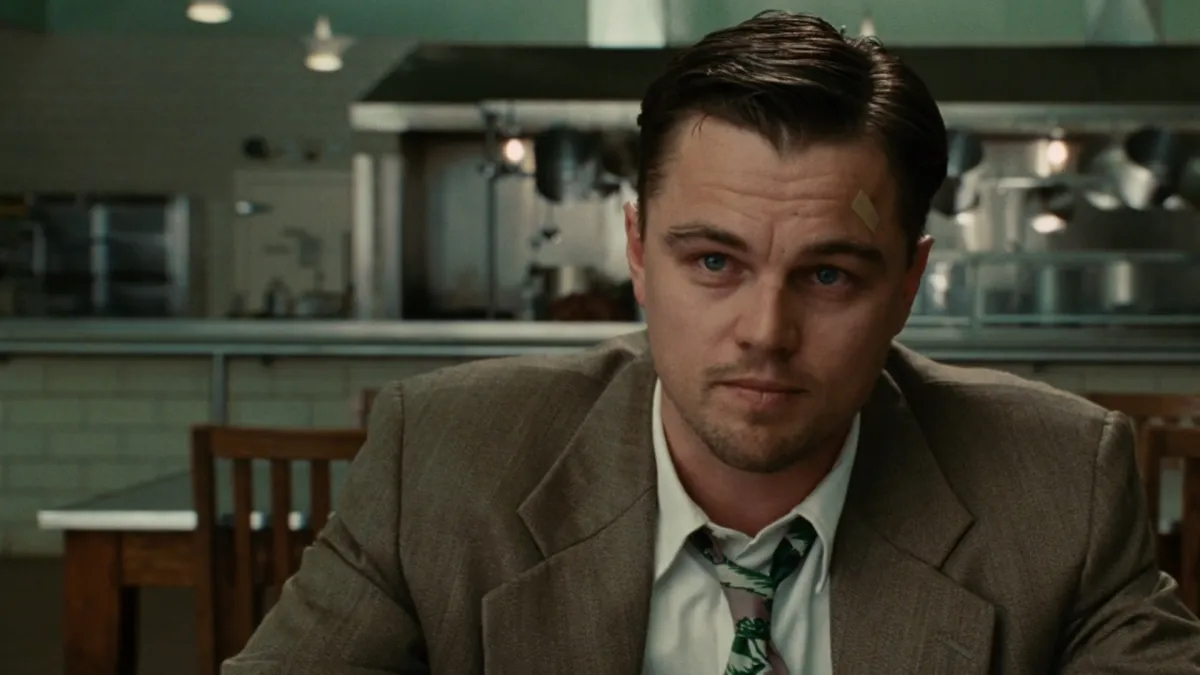Let’s Talking About the Meaning of ‘Shutter Island’s Ending

A movie that really is all about the setup and then a reveal that changes everything, Shutter Island brings us yet another time Martin Scorsese made Leonardo DiCaprio use a Boston accent. The end of the movie can be a bit confusing, mainly because you’re probably asking yourself, “What?” repeatedly.
Adapted by Laeta Kalogridis, the film takes U.S. Marshall Teddy Daniels to an island to investigate a missing person, but he quickly realizes that he is actually Andrew Laeddis, a man who murdered his wife. Leonardo DiCaprio plays Andrew and is having visions of his wife, Dolores (Michelle Williams), with their dead children and blood on Dolores’ hands, and it is revealed to us in the end that Andrew killed her when he discovered she had murdered their children and asked him to let her go.
In the last act of the movie, the “twist” reveals itself to be that Teddy Daniels simply never existed and that Andrew Laeddis is a patient on Shutter Island who refuses to accept what he’s done in his past and to his family. His “investigation” is all in his imagination. Doctors are trying to help him, but it’s not enough, and even when Dr. John Crawley (Ben Kingsley) spells everything out for him, it still isn’t enough to really be enough for Andrew.
They’ve been down this road before, with Andrew seemingly turning over a new leaf in his progress as a patient and accepting his past, but the ending of Shutter Island leaves audiences on a cliffhanger—or more a question of what you want to believe as the audience member for Teddy/Andrew and his future.
Which would be worse: to live as a monster, or to die as a good man?
Just when everyone thinks that Andrew is doing better, he regresses, saying that he has toget back to the mainland. But it is what Andrew says in that moment that makes it seem as if he is in more control of his ability to remember what he did than he has been letting on.
Before, his visions painted a clear picture of what happened with Dolores, even if Teddy/Andrew didn’t want to believe it. By the end of the movie, he’s looking around at Shutter Island and he says that it makes him think, “Which would be worse: to live as a monster, or to die as a good man?” That, to me, makes it clear that he does know exactly who he is and is choosing to see himself as Teddy instead of Andrew and see himself as a good man.
Others may see it as what he’s planning to do, but I think it shows that Teddy/Andrew has more control over his mind than he was letting on, and that he’s choosing to see himself as Teddy and wants to see himself in that path. The movie ends with him walking away, and we never really know what he meant by that statement, but the reality is you can never watch Shutter Island for the first time again.
(featured image: Paramount Pictures)
Have a tip we should know? [email protected]
